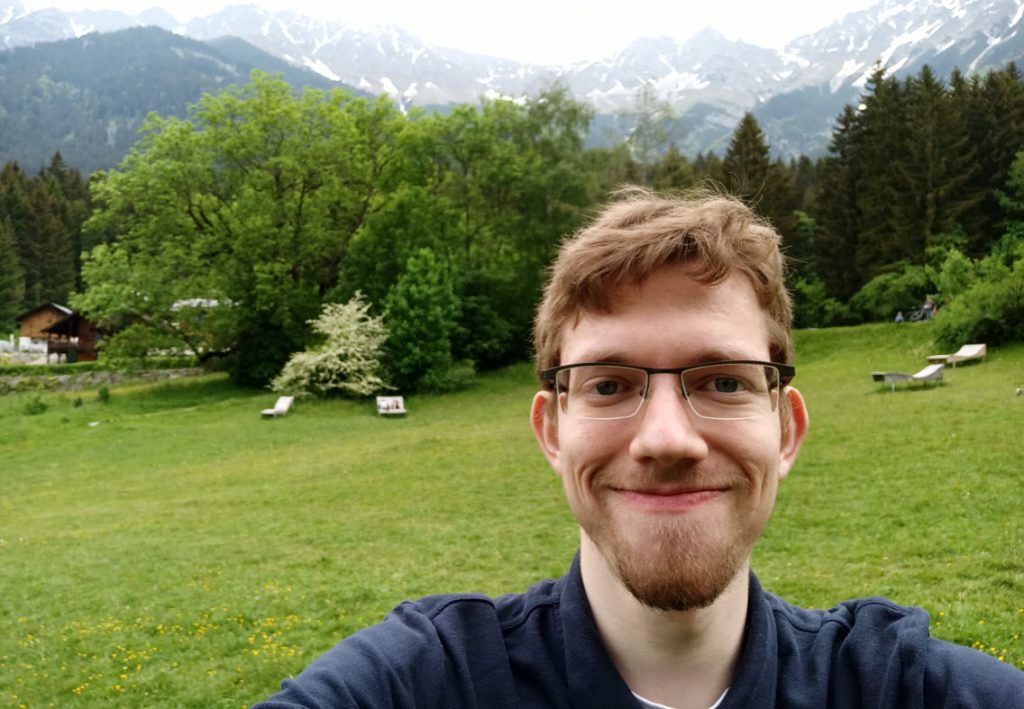Daniel Azses was born in Israel and currently lives in Modi’in. He completed his BSc (2018) and MSc (2020) in Physics at Bar-Ilan University and is currently studying towards his PhD in Physics at Tel Aviv University. His research is in the field of condensed matter physics, where he focuses on the connections between quantum computation, topological phases, and entanglement measures.
Daniel Azses Shares his Thoughts about Erasmus+
I decided to participate in the Erasmus+ program during my Master’s to cultivate my research and learn about new fields from highly renowned scientists, but also to experience what it is like to do a degree in Europe and consider it as an opportunity to perhaps do my doctorate there. I chose the University of Innsbruck in Austria for my student exchange and spent five months there from March to July 2020.
When the semester started, I walked into the lab on campus for the first time to meet in person with the group members. They immediately made me feel like one of the group. During the session, I discussed my research with them and they shared theirs with me. Some of their research was really close to what I was doing and I feel it helped me a lot as it provided a different perspective accompanied by a very nice toolset of mathematical tools.
 I feel that Erasmus+ helped me to work on my research more independently, and while I was there, I learned many new subjects and research directions that would have been unknown to me without the program. I also met other scientists from my field, which I hope will help to form collaborations in the future.
I feel that Erasmus+ helped me to work on my research more independently, and while I was there, I learned many new subjects and research directions that would have been unknown to me without the program. I also met other scientists from my field, which I hope will help to form collaborations in the future.
I think that it also helped me improve my spoken English and increase my circle of friends and colleagues. I connected with many different students from many different countries and learned so much from them about their countries.
My student exchange started very positively, but as the COVID-19 pandemic spread, there was a general lockdown, which happened about two weeks after the semester started. Due to this lockdown, it was harder to communicate freely with the group members and the university was generally closed. Therefore, I decided to return to an old project with a professor from my home country, which resulted in a paper.
I feel that the COVID-19 pandemic imposed a huge challenge due to all the changes that occurred very quickly. I think it helped me to learn how to adapt my research and how to see it as an opportunity. Though I didn’t manage to do substantial research with the group members at the host university, I was still able to use the remoteness to get back to an old project that, in the end, turned out to be successful.
The unfortunate part of being an exchange student at this time is that I couldn’t really experience the European culture in the way that I had hoped due to social distancing and the other restrictions. After most of the restrictions were lifted, it was still problematic because of the risk of infection and so, most of the time, I didn’t go out.
However, I did notice some differences between Austrian and Israeli lifestyles. Most people in Austria know how to ski, they use bicycles much more, and generally, there is more of a sports culture, even though most of the university’s sports classes were canceled due to COVID-19. Apart from these, the host city was much cleaner and the roads are generally very quiet. Maybe it was more noticeable because of COVID-19.
I gained so much during my exchange program especially regarding new research directions and opportunities, as well as discovering new fields. It also helped me to see that living in Europe is not that different from living in Israel and that being in Israel shouldn’t discourage me from considering such opportunities.
I’d like to add that the Erasmus+ program really supported us during the hard times of the COVID-19 pandemic. I’m very grateful for the very kind hospitality we received at the host university and all the support from our coordinators there. It was an experience I’ll never forget, even with the COVID-19 challenges.
Contact Us for More Info
Leave your details and we’ll get back to you soon

